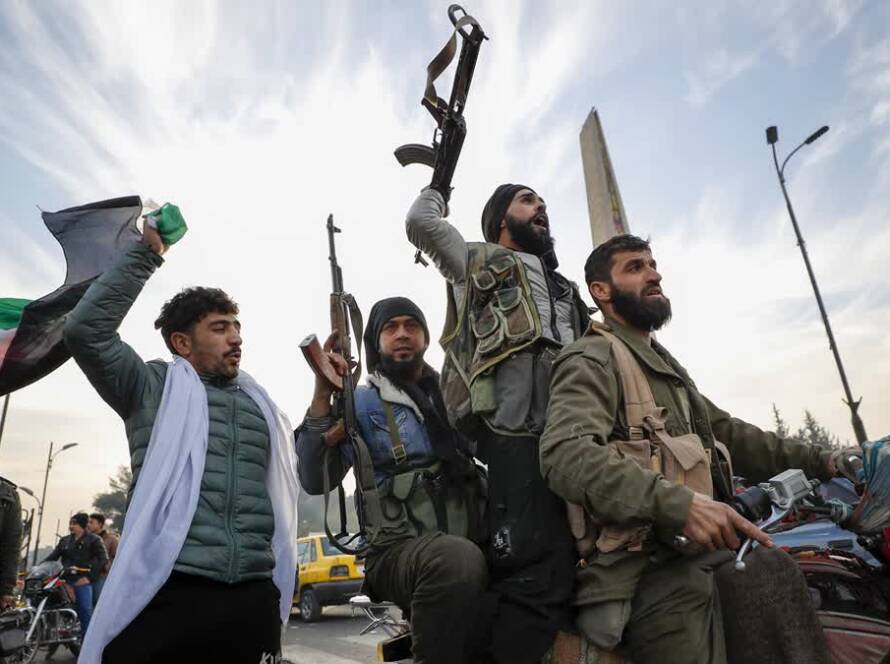By Rathindra Kuruwita
Bloodshed has been averted in Russia, probably to the relief of many who didn’t want further destabilization of the international order.
Russia seemed to be on the verge of civil war by Saturday when the leader of the Russian PMC Wagner, Yevgeny Prigozhin, announced that his forces had taken control of military facilities in Rostov-on-Don, including the air base, were heading “to Moscow”, and that his soldiers had shot down three Russian helicopters.
Wagnerites also took over the Russian city of Voronezh, almost 600 kilometers from Rostov-on-Don. Making a public statement, President Putin vowed stern action against Wagnerites. Given that Rostov-on-Don was the HQ for the Russian military operations in Ukraine and that Wagner could cut off all supplies to Russian troops, there was also a widespread belief that the Russian front in Ukraine would collapse.
By Saturday evening, 5,000-strong Wagner column made it to Moscow Oblast, within hours after taking over Russia’s southern military district. There were reports that Chechen Akhmat columns were moving to meet them in the Moscow Oblast and in Rostov.
Many, including myself, thought that a clash between the Chechens, loyal to Putin, and the Wagnerites would mean the start of a civil war. However, as abruptly as the Wagnerite mutiny began, it was over. Prigozhin and all Wagnerites not only turn back from Moscow Oblast, but also left Southern Military District HQ in Rostov-on-Don. Apparently, they will be deployed in Belarus, and the criminal charges against Prigozhin and all Wagnerites will be dropped. The crisis has been averted for now.
What caused the Wagner mutiny?
Based on the data available, it seems that Prigozhin was pushed towards muting due to his much publicized personal animosity with Defence Minister Sergei Shoigu, a close Putin ally, and Valery Gerasimov, chief of the General Staff. However, there are those who speculate that Prigozhin may have received money from NATO to destabilize Russia. Given that Prigozhin has a history of communicating with Ukrainian top brass, this is well within the reach of possibility.
Wagner was founded in 2014 and has fought a number of brutal battles on behalf of the Russian state and its allies. It helped the self-declared Donetsk and Luhansk People’s Republics in their battle against Ukraine from 2014 to 2015, fought in the civil wars in Syria, Libya, the Central African Republic, and Mali, fighting on the side of forces aligned with the Russian government, and most recently was behind the few successes of the Russian forces in Ukraine.
After withdrawing from the meatgrinder of Bakhmut, Prigozhin had been highly critical of the leadership of the Russian forces, especially Defence Minister Sergei Shoigu, a close Putin ally, and Valery Gerasimov, Chief of the General Staff, by accusing them of hiding Russia’s “very serious losses on the front” from Putin. He has repeatedly accused the pair of incompetence and of deliberately undersupplying Wagner units fighting in Ukraine.
Shoigu and Gerasimov earlier in June tried to make Wagnerites sign contracts directly with the Ministry of Defence, a move Prigozhin obviously resisted. TASS announced that the FSB had “initiated a criminal case”, accusing Prigozhin’s “statements” as being tantamount to “invocation of armed rebellion.”
On June 24 Wagner had taken over Russia’s Southern Military District, but Prigozhin seemed to be operating under the assumption that he was in open rebellion only against Shoigu and Gerasimov. The Wagner chief called for the sacking of Shoigu and Gerasimov. He only targeted Putin following the Russian President’s statement calling Prigozhin’s actions “treason” and vowing that those who “have betrayed Russia” would “be held accountable.” It was Putin’s speech that led to Wagner’s March to Justice. Shoigu and Gerasimov have now been sacked.
What comes next?
This is not the first time that elite paramilitary troops, who had seen brutal combat repeatedly, turned against the leader of a nation based on perceived betrayals or letdowns. Despite the relatively bloodless end to Saturday’s events, it is obvious that this has raised many questions about Putin’s hold on power.
The fact that Wagner with 25,000 men were able to take over control of Russia’s Southern Military district, which hold between 25 to 40 percent of Russian military assets including nukes, and were able to march within a few hundred kilometers of Moscow, virtually unopposed, are seen indications that there was significant support and/or sympathy towards Wagner among the regular Russian units. Moreover, apart from a few divisions of air force ground units and Chechens, Putin has no other reliable troops to stop Wagner columns on their way to Moscow.
This is the result of the Russian government’s strange war mobilization policies. A few weeks ago, The Economist published an article on Russia’s military spending. According to the article 3 percent of GDP (USD 67 billion) on the war in Ukraine. These are shocking numbers given that Russia is fighting a proxy war against a number of powerful nations.
Historically, the states or coalitions with higher military spending almost always wins. Russia’s policy of coasting along with bare minimum is militarily dubious at best and entails bigger tail risks. Ukraine had planned to spend 18.2 percent of GDP or USD 32 billion on the war in 2023. Kiel Institute predicts that Ukraine will get about USD 160 billion in aid this year. Essentially Ukraine is outspending Russia. Putin has not mobilized the society, raised troops or put the economy in war footing. Pretty strange spending for a war that Prigozhin in 2022 described as “tougher than Stalingrad.”
Due to their recent role in Ukraine, there is a lot of goodwill towards Wagner among Russians and this probably played a significant in them being unopposed. While, it is highly unlikely that Russian military and civilians would allow a force of hostile foreigners march across the country, this display of weakness would have encouraged many of Russia’s enemies.
Meanwhile, Russia’s allies would have looked on with surprise and consternation the developments on Saturday. To say that China, India, Iran, Syria, and a number of South American, Asian, and African countries, looking for a stable long term ally in Russia would have been troubled by these developments would be an understatement.
Prigozhin wanted Shoigu and Gerasimov removed from their positions, and there are reports that they are sacked. Shoigu is a staunch ally of Putin. While it is obvious that Shoigu and Gerasimov have bungled up the Russian operations in Ukraine, the fact that Putin was forced to remove them sends a clear signal that the Russian president no longer has the sole levers of power in Russia. A number of generals also were lukewarm in their response to the Wagner incursion to Moscow oblast and only the Air Force stood loyally with Putin. The coming weeks will answer whether could Putin live with that.
Rathindra Kuruwita is a journalist and a researcher from Colombo, Sri Lanka. He holds a MSc in Strategic Studies from the S. Rajaratnam School of International Studies, NTU, Singapore. He was also a fellow at Daniel K. Inouye Asia-Pacific Center for Security Studies, USA, and a participant of the International Visitor Leadership Program (IVLP) conducted by the US Department of State. He writes on security and international relations to several publications and has written extensively on the Sri Lanka-China relationship.
Factum is an Asia-Pacific focused think tank on International Relations, Tech Cooperation, and Strategic Communications accessible via www.factum.lk.
The views expressed here are the author’s own and do not necessarily reflect the organization’s.


